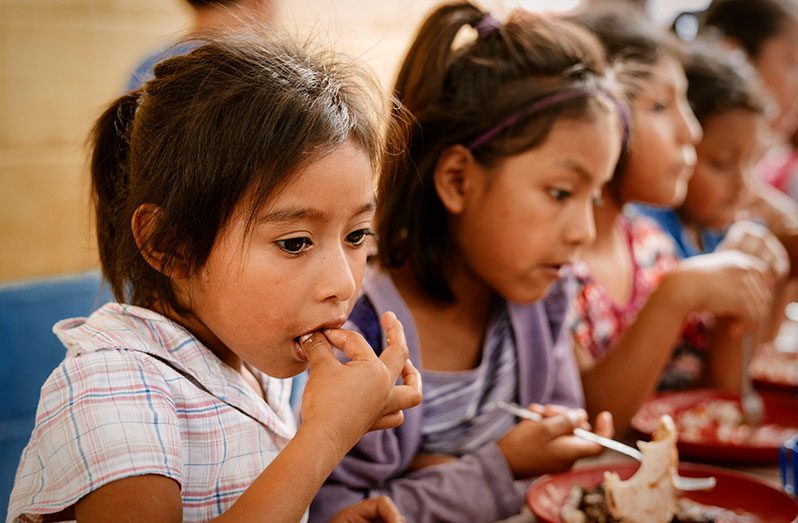— UN agencies back this bold plan and its actualisation by 2030
UNITED Nations agencies have announced their strong support for an international coalition intended to rapidly improve the nutrition, health and education of school-age children around the world following pandemic-driven school closures.
In 2020, the COVID-19 pandemic caused extensive disruption to schools and education worldwide and millions of children were unable to get their school meals or benefit from school-based health and nutrition services such as de-worming, vaccination and psycho-social support. Globally, more than 150 million children are still missing out on meals and essential health and nutrition services.
In a joint declaration, five agencies committed to assisting the School Meals Coalition, a grouping of more than 60 countries led by France and Finland, whose vision is to give every child in need the opportunity to receive a nutritious meal in school by 2030. The coalition is also committed to ‘smart’ school meals programmes, which combine regular meals in school with complementary health and nutrition interventions for children’s growth and learning.
“School health and nutrition programmes are impactful interventions to support schoolchildren and adolescents’ growth and development,” the UN agencies’ leaders said in their declaration. “They can help to combat child poverty, hunger and malnutrition in all its forms. They attract children to school and support children’s learning, and long-term health and well-being.”
School children are not the only ones who benefit. The leaders of the five agencies noted that school meals can serve as “springboards” for food system transformation. Where possible, they can use locally grown food, supporting national and local markets and food systems, improving opportunities for small-holder farmers and local catering businesses, many led by women. These programmes can contribute to the achievement of at least seven of the SDGs.
Each of the five UN agencies — the Food and Agriculture Organization of the United Nations (FAO), the United Nations Educational, Scientific and Cultural Organization (UNESCO), UNICEF, the UN World Food Programme (WFP) and the World Health Organization (WHO) — will bring a specific set of expertise to the coalition. More than 50 partners, including NGOs, civil society, foundations and other organisations have said they will also provide support.
“FAO is fully committed to supporting members through the Global School Meals Coalition. It comes at a critical time to safeguard children’s access to nutritious foods and life skills, as well as for supporting local community development and agri-food systems transformation,” declared QU Dongyu, Director-General of FAO.
The coalition will work to restore the school meals and other health and nutrition programmes that were in place before the COVID-19 pandemic, expand these to reach 73 million children who were not covered before COVID, and raise their quality in part by establishing standards and linking them to local food production where possible.
In their declaration of support, the leaders of the five UN agencies committed to work with governments to achieve the coalition’s goals, providing technical and operational support where it was needed, as well as advocating for funding and helping gather better data about the impact of school health and nutrition programmes. (FAO)




.png)









